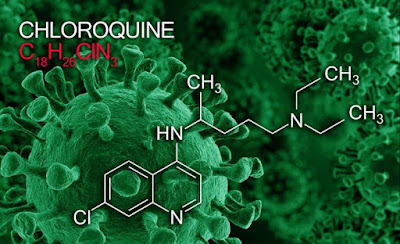Filenews 22 March 2021 - by Marilena Panagi
Eighteen months after the appearance of the coronavirus on the planet, dozens of investigations are underway, dozens of studies to identify drugs capable of treating covid-19 disease.
Hopes occasionally rise when some "known" drugs are thrown into the scientific world in the battle to treat the disease, which for years have been used to treat other diseases and show positive signs of covid-19. However, it is noted that any efforts made to date do not appear to have paid off and at the moment the focus is on the experimental anti-drug under trial by Merck & Co Inc.
"Unfortunately, excessive expectations had developed about the value of some medicines," Associate Professor in the Pharmacy Program of the University of Nicosia, Christos Petrou, told "F", arguing that at the moment it appears "to create a new hope from the pharmaceutical company Merck & Co Inc which announced that the experimental anti-viral drug 'molnupiravir', which it is developing, showed a faster reduction in viral load, according to a study carried out in the second phase of clinical trials involving patients in the early stages of the disease".
"One of the main objectives for the treatment of the pandemic is the discovery of anti-viral drugs that can treat the virus either in the early stages of infection, or to limit its proliferation and progression of the disease," he said, adding that research so far has focused mainly on "the repositioning of drugs, the use of old medicines, anti-viral or not that can have value. , in relation to coronavirus, but also new medicines'.
Essentially, he said, "remdesivir is the only antithic that showed some value for use," while "other drugs used in specific groups of patients, such as dexamethasone and tosilizubab, appeared not to directly affect the virus, but showed that they can reduce severe inflammation."
Especially for hydroxychloroquine, "a strong scientific and non-scientific dialogue has developed". However, 'no study has shown that this medicine did have a benefit so that a cheap, safe and effective option could emerge'.
Indeed, "recently the World Health Organization strongly and definitively opposed the use of the drug as a prophylaxis against COVID-19, while the FDA also withdrew its emergency license months ago."
Regarding ivermectin, Mr. Petrou said that "it is an antiparasetic drug, it has been tested in mainly small-scale studies, but there is not enough data to support its use in the treatment of covid-19 patients".
For this substance, "the FDA has warned against its unauthorised use, while highlighting the risk of side effects and interactions with other medicines." At the same time, "a new study published in the medical journal "JAMA" found that ivermektin does not appear to "significantly improve" the time it takes to improve symptoms in patients with Covid-19.".
As for colichicin, "a large reliable British RECOVERY study has shown that it does not reduce mortality in hospitalized patients." The results showed, "that there is no significant difference in mortality at 28 days, whether patients were receiving colchicine in combination with corticosteroids or only corticosteroid therapy."
